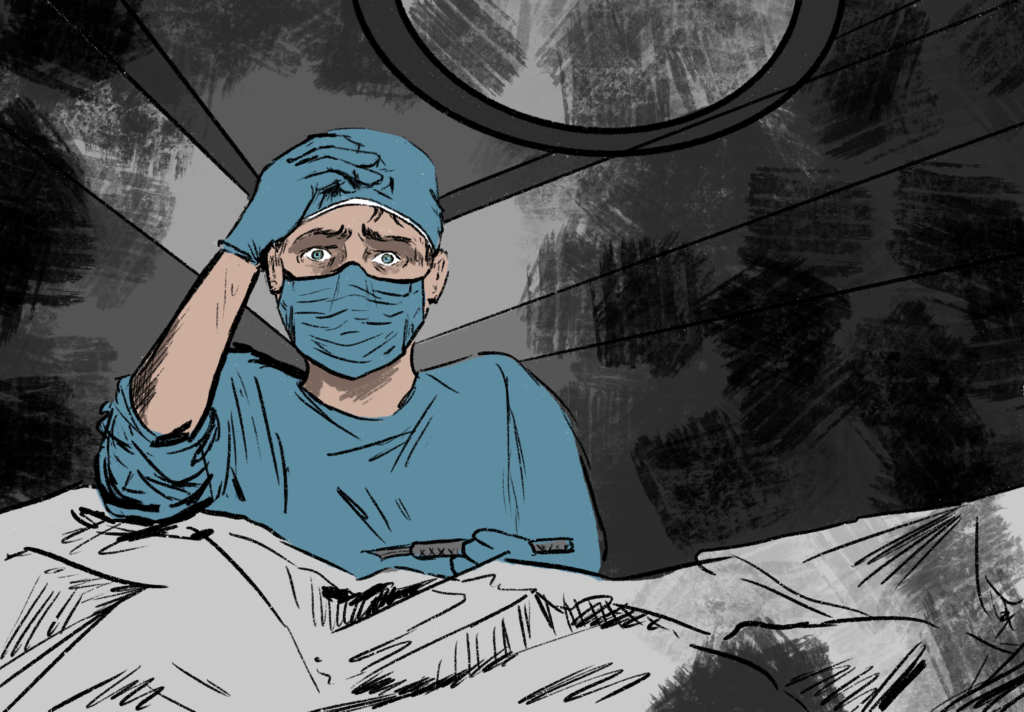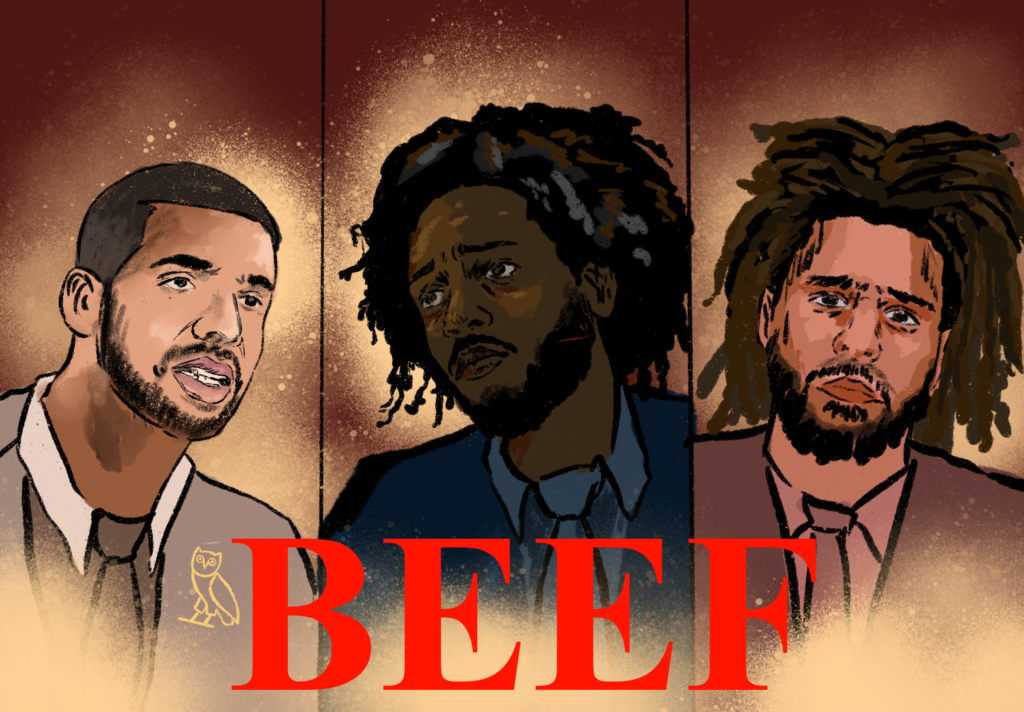
Graphic by Evelyn Kim ’25/The Choate News
By Laveenya Seenivasagam ’27, Opinions Writer
What is expected of a medical practitioner, who has dedicated their life to saving the lives of others, when their patient requests a do-not-resuscitate (DNR) order? Though the Hippocratic Oath has long been considered outdated for its inability to address modern advancements in medical technology and ethical norms, the philosophy of putting the patients first could be an integral part of addressing major problems in America’s healthcare.
Preserving life is emphasized in the Hippocratic Oath, a commitment that has molded the moral basis of medicine since its inception in Ancient Greece. I can see how physicians would feel motivated to employ every resource available to them in order to preserve and restore life. After all, modern medicine has given us the ability to save patients who might otherwise have died — people who suffer from heart attacks, strokes, or traumatic injuries often recover fully, and in these situations, resuscitation offers a second chance at life.
However, the Hippocratic Oath fails to address the nuances of medical treatment that weren’t prevalent when the guideline was founded. Consider DNR orders, where patients are given the ability to maintain their autonomy and dignity when the preservation of life won’t preserve their quality of life. Pushing forward with resuscitation when it could cause more suffering is a difficult concept to accept, especially when there is minimal to no prospect of recovery.
The Hippocratic Oath, which was built upon the purpose of protecting the patient’s life, supposedly fails in the face of a DNR order. It may seem that doctors under the oath would theoretically fail in doing “no harm or injustice to them” if they deliberately abstain from saving a life. Moreover, the document explicitly states that doctors must not harm human life in any way, whether it’s administering euthanasia or performing an abortion.
While there exist numerous conflicting interpretations of the earliest document of the Hippocratic Oath, it’s reasonable to assume that the guideline was built with the core value of protecting life. In an age with less developed medical technologies, it’s possible that practitioners had no room to consider ethics — if life could be saved, it should be saved. This black-and-white view of human life is no longer reciprocated in modern medicine. If the Hippocratic Oath were to be amended to address the importance of quality of life, it would not only grant doctors a motive but also ensure the guideline’s compliance with contemporary treatment.
Moreover, it’s possible that the incorporation of an amended Hippocratic Oath in medical practice will decrease the cost of healthcare. When describing the role doctors should play in educating future generations of doctors, the Hippocratic Oath states: “If they want to learn it, without fee or indenture.” In encouraging doctors to place responsibility for their patients over their own monetary benefit, the Hippocratic Oath presents interesting opportunities to gradually remodel national healthcare systems by adjusting the priorities of physicians.
The Hippocratic Oath’s commitment to life preservation, though antiquated, has the potential to weave around pre-established medical procedures while inspiring doctors to practice their profession with passion, and potentially work towards a more compassionate, affordable healthcare system.




